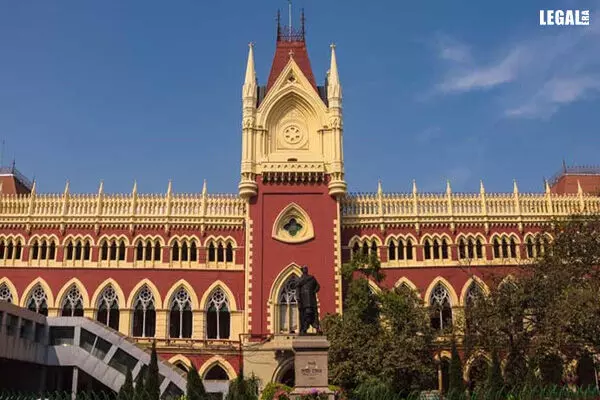- Home
- News
- Articles+
- Aerospace
- Artificial Intelligence
- Agriculture
- Alternate Dispute Resolution
- Arbitration & Mediation
- Banking and Finance
- Bankruptcy
- Book Review
- Bribery & Corruption
- Commercial Litigation
- Competition Law
- Conference Reports
- Consumer Products
- Contract
- Corporate Governance
- Corporate Law
- Covid-19
- Cryptocurrency
- Cybersecurity
- Data Protection
- Defence
- Digital Economy
- E-commerce
- Employment Law
- Energy and Natural Resources
- Entertainment and Sports Law
- Environmental Law
- Environmental, Social, and Governance
- Foreign Direct Investment
- Food and Beverage
- Gaming
- Health Care
- IBC Diaries
- In Focus
- Inclusion & Diversity
- Insurance Law
- Intellectual Property
- International Law
- IP & Tech Era
- Know the Law
- Labour Laws
- Law & Policy and Regulation
- Litigation
- Litigation Funding
- Manufacturing
- Mergers & Acquisitions
- NFTs
- Privacy
- Private Equity
- Project Finance
- Real Estate
- Risk and Compliance
- Student Corner
- Take On Board
- Tax
- Technology Media and Telecom
- Tributes
- Viewpoint
- Zoom In
- Law Firms
- In-House
- Rankings
- E-Magazine
- Legal Era TV
- Events
- Middle East
- Africa
- News
- Articles
- Aerospace
- Artificial Intelligence
- Agriculture
- Alternate Dispute Resolution
- Arbitration & Mediation
- Banking and Finance
- Bankruptcy
- Book Review
- Bribery & Corruption
- Commercial Litigation
- Competition Law
- Conference Reports
- Consumer Products
- Contract
- Corporate Governance
- Corporate Law
- Covid-19
- Cryptocurrency
- Cybersecurity
- Data Protection
- Defence
- Digital Economy
- E-commerce
- Employment Law
- Energy and Natural Resources
- Entertainment and Sports Law
- Environmental Law
- Environmental, Social, and Governance
- Foreign Direct Investment
- Food and Beverage
- Gaming
- Health Care
- IBC Diaries
- In Focus
- Inclusion & Diversity
- Insurance Law
- Intellectual Property
- International Law
- IP & Tech Era
- Know the Law
- Labour Laws
- Law & Policy and Regulation
- Litigation
- Litigation Funding
- Manufacturing
- Mergers & Acquisitions
- NFTs
- Privacy
- Private Equity
- Project Finance
- Real Estate
- Risk and Compliance
- Student Corner
- Take On Board
- Tax
- Technology Media and Telecom
- Tributes
- Viewpoint
- Zoom In
- Law Firms
- In-House
- Rankings
- E-Magazine
- Legal Era TV
- Events
- Middle East
- Africa
Calcutta High Court Allows Taxpayer to File Representation against Additional Liability on Government Contracts

Calcutta High Court Allows Taxpayer to File Representation against Additional Liability on Government Contracts
The matter arose out of the implementation of the Goods and Services Tax on 1 July 2017
The Calcutta High Court has granted liberty to a taxpayer to file an appropriate representation before the Additional Chief Secretary, Finance Department, Government of West Bengal against the additional tax liability on government contracts.
The single-Judge bench of Justice Md. Nizamuddin also stayed any coercive action against the petitioner until the Additional Chief Secretary took a final decision on the representation.
The writ petition was filed to seek relief by directing the Goods and Services Tax (GST) authority to bear the additional tax liability associated with existing government contracts. The contracts were either awarded before GST implementation on 1 July 2017 or afterward. However, in both cases, the Schedule of Rates (SOR) was not updated to include the applicable GST rates when preparing the Bill of Quantities (BOQ) for inviting bids.
The petitioner requested directions to mitigate the tax burden on government contracts that arose after GST introduction. It sought for ongoing contracts awarded before the GST's effective date. Additionally, the petitioner pleaded for updating the State SOR to incorporate the applicable GST rates, replacing the outdated West Bengal Value Added Tax (VAT).
However, while disposing of the writ petition, the Court provided liberty to the petitioner to file appropriate representation before the Additional Chief Secretary. The bench instructed the Finance Department to decide the matter after consultations with other pertinent departments of the government.
The Judge directed that until the decision of the Additional Chief Secretary was pending, no coercive action should be initiated against the petitioner. He pointed out that the Court's order would not be enforceable if the petitioner failed to submit the representation within the specified timeframe.



